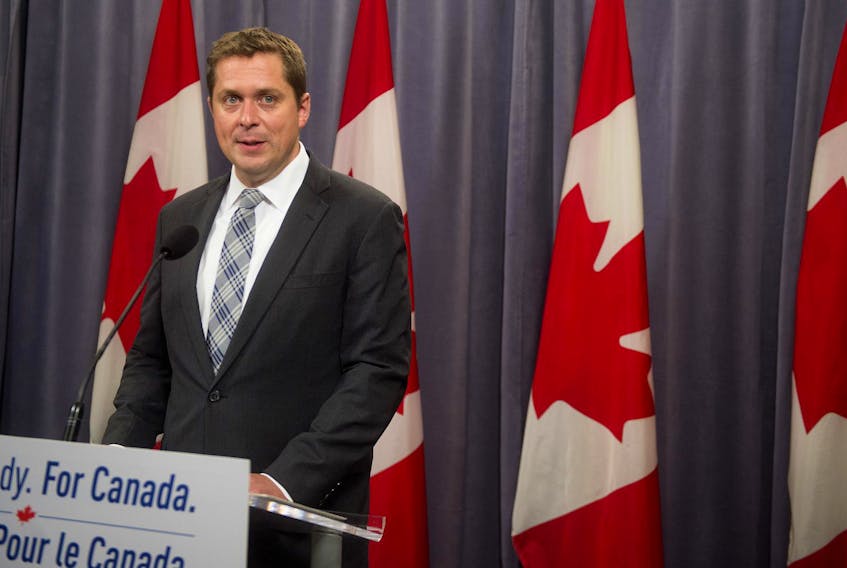One campaign promise Justin Trudeau’s Liberals can genuinely claim to have kept appears on page 69 of their 2015 platform: “We will renew Canada’s commitment to peacekeeping operations.”
It was a low bar to clear, and it was based on a quintessential Liberal myth — that “Stephen Harper … dramatically scaled back (Canada’s) involvement in peace operations.” (There were 112 active Canadian peacekeepers when Trudeau took office, 370 when Harper took office, and 2,318 when Jean Chrétien took office.)
They didn’t clear the bar by much: as of March 31, Canada had 192 officially designated peacekeepers on active duty, comprising 0.2 per cent of total UN peacekeeping forces. The majority are assigned to the UN Multidimensional Integrated Stabilization Mission in Mali, of which they represent 0.9 per cent of the complement.
They cleared the bar very slowly — in Trudeau’s first year in office Canada’s peacekeeping forces shrank from 112 to 106, in his second to 62 — and perhaps only briefly. In March the UN formally asked Canada to extend its mission by two-and-a-half months, to prevent a gap in medevac capabilities. Foreign Affairs Minister Chrystia Freeland declined.
But they cleared the bar. Promise kept.
One wonders, though, just how many people noticed. It barely made a dent in the news. The world “Mali” has been uttered in the House of Commons all of 13 times in 2019. To a large extent this is no doubt good news — evidence that things haven’t gone to hell like they did in Rwanda and Somalia. It’s also appropriate given Canada’s minuscule contribution. But then, what was the point of it? A seat on the UN Security Council? Some Canadians had great fun mocking the Conservatives losing that contest, but few would be able to articulate a single tangible benefit to winning it.
Last week, in the first of a suite of policy speeches, Andrew Scheer assailed Trudeau’s and the Liberals’ foreign policy record: “style over substance,” “hyper-politicized” military procurement, weak on Israel and soft on China.
As prime minister, Scheer promised, he would take on China on trade, human rights and access to Canadian markets; he would move the Canadian embassy from Tel Aviv to Jerusalem; he would build a fleet of icebreakers to cement Canada’s Arctic sovereignty; he would “renew our support for the Canadian Armed Forces”; he would depoliticize procurement.
Should Scheer win in October, it will be fair to give him a chance to follow through. But it’s tough not to notice how much he sounds like Stephen Harper in opposition. “For decades, successive Liberal governments have undermined and under-funded Canada’s armed forces,” the Conservatives’ 2006 platform alleged. Military spending was at 2.9 per cent of government expenditures when they took office, peaked at 3.2 per cent in 2008, then bottomed out at 2.5 per cent in 2013. In real dollars, Trudeau’s Liberals have spent considerably more on the military than Harper’s Conservatives ever did.
The Sea King helicopter fiasco was a central Conservative talking point on Liberal incompetence, and on military procurement specifically. The last Sea King was retired only a few months ago.
In 2005, Harper promised he would deliver three shiny new icebreakers. Two years later it became six to eight “slushbreakers.” The first is due for delivery this year — fully 14 years after Harper promised something better.
Harper’s policy on China, too, famously evolved from that of a democracy-and-human-rights hardliner, who derided his predecessors’ shameless pursuit of the “almighty dollar,” to that of a thoroughly conventional PM who pays the right compliments to the right people and comes home with his trade deals and pandas.
The Conservatives did stick to their guns on Israel — that much is true. But that pleases the Tory base, and it costs nothing to cast a vote at the UN General Assembly one way or the other. Moving the embassy will do the same, at a fraction of the cost of a single fighter jet. It will cause a ruckus, thus pleasing the Tory base even more, but won’t make an iota of difference to the peace process.
The fact is, governments rarely spend money on things their constituents don’t care about. And while many Canadians clearly enjoy debating soft power vs. hard power as a theoretical concept, and it’s essential to political parties’ branding, except at times of acute disaster — 9/11 and the war in Afghanistan, the Syrian refugee crisis — there’s little evidence we particularly care what Canada’s contribution adds up to in the real world.
An Angus Reid poll conducted before the 2015 election found 74 per cent felt “Canada should be focused on peacekeeping,” where the alternative was “Canada should be focused on combat preparedness.” The poll didn’t ask how much money they were willing to spend on that focus, but the next question offered a hint: Should Canada raise its foreign aid contributions from 0.24 per cent of gross national income to 0.7 per cent — a target to which we committed nearly 50 years ago and have never approached?
Seventy-three percent said they preferred the lower number — a very Canadian result. Style over substance, one might say.
• Email: [email protected] | Twitter: cselley
Copyright Postmedia Network Inc., 2019









